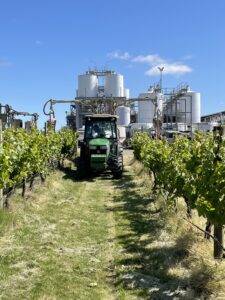
Australia’s beverage scene is witnessing a surge in the popularity of no- and low-alcohol (NOLO) beverages. This trend reflects a growing consumer demand for healthier options without compromising on taste or the social experience of drinking. Australian consumers now have access to a diverse array of NOLO spirit options. These products are often made with botanical extracts, natural flavours and innovative distillation techniques to mimic the taste, aroma and complexity of their alcoholic counterparts, without the intoxicating effects.
Although a number of de-alcolisation techniques are commonly used to produce NOLO beer and wine products, NOLO spirit products tend to be produced without any fermentation process or alcohol removal. A water base is often used to extract the desired aromas and flavours, either through maceration or infusion with selected ingredients or through steam extraction via a short distillation process. Natural flavours, extracts and additives are then used to create complex aroma profiles and build the mouthfeel characters that are reminiscent of traditional spirits.
The use of a water base rather than alcohol, however, means that the solubility of important compounds is different: water-soluble components such as sugars, minerals and some glycosides are readily extracted using water, while some volatile aromatic compounds are less soluble, leading to less intense aroma and flavour profiles in water-based extracts. An understanding of which volatile compounds are affected by this difference, and the sensory characters associated with them, allows producers to carefully modify the NOLO product to achieve a balanced flavour profile that mimics the alcoholic version.
NOLO spirits are inherently more susceptible to microbial spoilage than alcoholic versions, as alcohol naturally acts as an anti-microbial agent. This leaves NOLO spirits susceptible to microorganisms associated with poor hygiene or process control, such as coliforms, Listeria and yeasts/moulds. Preservatives or pasteurisation techniques may be necessary to ensure product stability and safety over time, and it is always important to test NOLO products for microbial stability, to ensure consumer safety and brand integrity.
Under Food Standards Australia New Zealand (FSANZ) regulations, products with 0.5% ABV or less are not required to declare alcohol content on the label, but may use terms such as ‘alcohol-free’ or ‘contains no alcohol’. However, this must be backed up by analytical testing which has specifically quantified ethanol content as <0.5% ABV. Affinity Labs has specifically developed robust and reliable testing of ethanol at this low level, to support testing and labelling compliance for NOLO producers.
By using innovative formulation and distillation processes, NOLO spirit producers can create products that retain the complex flavours and aromas of traditional spirits, allowing consumers to enjoy the sensory experience, despite the absence of alcohol. As consumer preferences evolve and innovation continues, the Australian NOLO spirit market is expected to experience continued growth and offer an opportunity for spirit producers to cater to a more varied blend of consumers.


